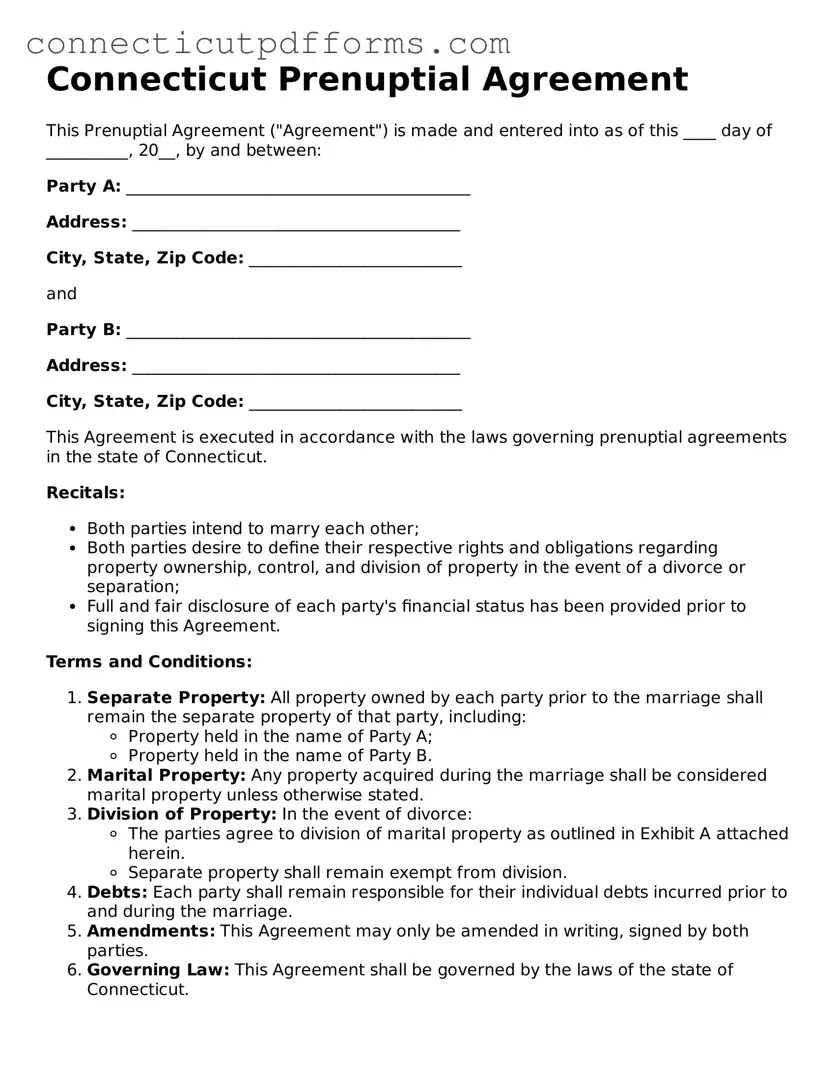Fillable Prenuptial Agreement Form for Connecticut
A Prenuptial Agreement is a legal document that outlines the financial and property rights of each spouse in the event of a divorce or separation. In Connecticut, this agreement helps couples protect their assets and clarify their financial responsibilities before entering into marriage. Understanding how to properly fill out this form can provide peace of mind as you embark on your journey together.
Ready to get started? Fill out the form by clicking the button below.
Launch Editor Now

Fillable Prenuptial Agreement Form for Connecticut
Launch Editor Now
Finish the form without slowing down
Edit your Prenuptial Agreement online and finish with a quick download.
Launch Editor Now
or
▼ Prenuptial Agreement PDF Form
